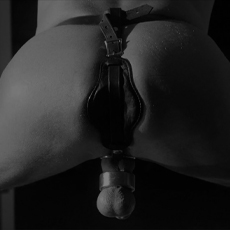
Experiencing a miscarriage is a deeply personal and often challenging journey that affects both the body and emotions. One common question many people face during recovery is when it’s safe to resume sexual activity. This decision involves more than physical readiness—it also requires emotional healing and understanding the medical guidance for reducing risks like infection or complications. In this article, we’ll explore the factors that determine how long to wait after a miscarriage, why this waiting period is important, and how to approach recovery.
Why should a person wait to have sex after a miscarriage?
Waiting to have sex after a miscarriage is often recommended by healthcare professionals to allow both the body and emotions time to heal. Here's a detailed explanation on why this waiting period is important:
Physical Recovery: After a miscarriage, the body undergoes several changes as it recovers. The uterus needs time to return to its normal size, and any tissue or bleeding from the miscarriage has to be fully resolved. Dr. Zev Williams, a specialist in reproductive endocrinology, explains that "it can take several weeks for the cervix to close and for the uterine lining to shed completely after a miscarriage. Engaging in sexual activity too soon can increase the risk of infection because the cervix may still be open, and bacteria could enter the uterus more easily during this time." Therefore, it's crucial to avoid sex until any vaginal bleeding has stopped and the body has healed properly.
Risk of Infection: One of the primary reasons for waiting is to prevent infection. According to Dr. Mary Jane Minkin, a gynecologist and clinical professor of obstetrics at Yale University, "during the miscarriage process, the uterus is more vulnerable, and sexual intercourse can introduce bacteria into the reproductive system." This risk is heightened immediately following a miscarriage when the body is still shedding tissue. Doctors usually recommend abstaining from sex for at least two weeks or until a follow-up medical check confirms that there are no complications.
Emotional Healing: Miscarriage can be a traumatic and emotionally difficult experience. Many couples need time to process their grief and cope with the loss before resuming sexual intimacy. Dr. Elizabeth Newhall, a psychologist specializing in reproductive health, emphasizes, "there is no rush to return to sexual activity, as emotional healing often takes time. Couples should feel emotionally ready and comfortable before engaging in sex again." Pushing for a return to normal intimacy too soon can create additional emotional strain.
Preparing for Future Pregnancies: For couples looking to conceive again, allowing time for proper recovery is essential for future reproductive health. The body needs time to rebuild its strength and prepare for another pregnancy. Dr. Serena Chen, a reproductive endocrinologist, advises, "waiting at least one or two menstrual cycles before trying to conceive again can give the body time to recover and reduce the chances of complications in future pregnancies."
How long should you wait to have sex after a miscarriage?
The timing for resuming sexual activity after a miscarriage can vary depending on physical healing and emotional readiness. Most experts agree that waiting at least two weeks before having sex is advisable to reduce the risk of infection, especially if the miscarriage was spontaneous and involved some bleeding or tissue passage. This period allows the cervix, which may have been dilated during the miscarriage, to close, minimizing the chances of infection. Dr. Zev Williams, chief of reproductive endocrinology and infertility at Columbia University, suggests, "It’s important to give the body time to heal after a miscarriage, and sexual intercourse should be avoided until bleeding has completely stopped to prevent infection."
Health factors that determine how long to wait
Several health factors play a crucial role in determining how long a person should wait after a miscarriage before attempting to conceive again. The appropriate waiting period varies depending on individual circumstances, medical history, and emotional readiness. Below are some key health factors that should be considered:
Physical Recovery

The body needs time to recover physically after a miscarriage. Depending on the stage of pregnancy when the miscarriage occurred, recovery times can differ. In most cases, doctors recommend waiting until at least one complete menstrual cycle has occurred before trying to conceive again. However, for later miscarriages or those involving complications such as heavy bleeding or infection, a longer recovery time may be necessary.
Uterine health: After a miscarriage, the uterus needs time to shed the remaining tissue, if any, and return to its normal size. This process typically takes a few weeks. If the miscarriage occurred during the second trimester, recovery might take longer.
Menstrual cycle regulation: Ovulation and menstrual cycles need to stabilize after a miscarriage to optimize the chances of a healthy pregnancy. Waiting until the menstrual cycle has returned to normal ensures that hormonal balance is restored, which can reduce the risk of another miscarriage.
Emotional Well-being
Miscarriage can be a deeply emotional experience, and mental health is just as important as physical health when determining the appropriate waiting period. Feelings of grief, anxiety, or depression are common, and it may take time for the individual or couple to process the loss.
Mental health support: Some people may benefit from counseling or joining support groups to process their emotions before feeling ready to try again. It's essential that the person feels emotionally prepared to go through the potential stresses of another pregnancy.
Relationship considerations: Couples should also discuss their feelings openly with each other, as both partners may need time to heal emotionally before considering another pregnancy.
Underlying Medical Conditions
The presence of certain medical conditions can affect both the waiting period and future pregnancy outcomes. Consulting a healthcare provider to manage any pre-existing conditions is critical before attempting to conceive again.
Recurrent miscarriages: If someone has experienced multiple miscarriages, their healthcare provider might recommend a longer waiting period and additional testing to determine any underlying causes, such as genetic issues, hormonal imbalances, or uterine abnormalities.
Chronic health conditions: Conditions like diabetes, thyroid disorders, or autoimmune diseases can increase the risk of miscarriage. Properly managing these conditions before trying to conceive again is essential for a healthier pregnancy.
Nutritional deficiencies: Nutrient levels, such as folate and iron, should be optimized after a miscarriage. A healthcare provider may recommend dietary changes or supplements to support recovery and reduce future pregnancy risks.
Age and Fertility
Age plays a significant role in fertility and pregnancy outcomes. For individuals over 35, fertility declines more rapidly, and waiting too long could make it more challenging to conceive. In such cases, the healthcare provider might recommend a shorter waiting period, provided physical and emotional recovery is complete.
Advanced maternal age: Women over 35 may be advised to resume trying for pregnancy sooner because of the natural decline in fertility. However, this should only occur when they are physically and emotionally ready.
Fertility treatments: If assisted reproductive technologies (ART) such as IVF are involved, a fertility specialist might have specific recommendations for the waiting period based on the treatment protocols.
Medical Procedures Involved in the Miscarriage
The type of miscarriage (spontaneous, incomplete, or missed) and the method used to manage it (natural, medical management, or surgical procedures like dilation and curettage, or D&C) will also influence the waiting period.
Surgical recovery: For those who had a D&C, the uterine lining may need additional time to heal. A healthcare provider may recommend waiting at least a few months to allow full recovery.
Natural miscarriage: If the miscarriage occurred naturally without medical intervention, recovery may be quicker, but it's still important to ensure the body has fully healed.
Infections and Complications
Complications such as infections or hemorrhaging during or after a miscarriage can lengthen the recommended waiting time. Addressing these complications and allowing the body to fully recover is essential before trying again.
Infection risk: If an infection occurred, it's critical to wait until it is fully treated and resolved. Attempting pregnancy too soon after an infection can lead to complications in the next pregnancy.
Blood loss and anemia: Excessive blood loss during a miscarriage can lead to anemia, which may require treatment with iron supplements or dietary changes. Recovery from anemia can take weeks or even months.
Waiting for the bleeding to stop
After a miscarriage, it's essential to wait for the bleeding to stop before engaging in sexual activity. The bleeding is a natural part of the body's healing process as it expels remaining tissue from the uterus and begins to recover. This can last anywhere from a few days to several weeks, depending on the individual. Engaging in sexual activity too soon may introduce bacteria and increase the risk of infection or prolong the healing process. It can also be physically uncomfortable, as the body may still be sensitive or sore from the miscarriage.Most healthcare providers recommend waiting until the bleeding has completely stopped, as this indicates the uterus has healed sufficiently.
Coping With Pregnancy Loss

Coping with pregnancy loss is an emotionally and physically complex process. For many individuals and couples, a miscarriage can evoke a wide range of emotions—grief, sadness, guilt, and even a sense of isolation. It's important to understand that these feelings are natural and part of the healing process. Each person or couple may navigate the aftermath of a miscarriage differently, and finding a path toward healing involves both emotional and physical recovery.
Emotional Healing
The emotional impact of pregnancy loss can be profound, and for many, the grief may feel overwhelming. It is crucial to give yourself time and space to grieve in a way that feels right for you. Support from a partner, family, or a counselor can be invaluable during this time. Sharing your feelings, whether through conversation, writing, or support groups, can help alleviate the burden of carrying these emotions alone. Recognizing that grief doesn't have a timeline and that healing may come in waves can also aid in the emotional recovery process.
Physical Recovery
The body goes through significant changes after a miscarriage, and just as with emotional healing, physical recovery takes time. Depending on the stage of pregnancy, the body may need days to weeks to recover fully. Rest and proper care are essential during this period. Medical professionals often recommend avoiding strenuous physical activity, including sexual intercourse, until the body has healed sufficiently.
Resuming Intimacy After Pregnancy Loss
One important aspect of recovery that many couples may wonder about is when and how to resume sexual activity after a miscarriage. The decision to have sex again after pregnancy loss can be influenced by both physical readiness and emotional comfort.
Physical Considerations
From a medical standpoint, doctors typically advise waiting until bleeding has stopped and the cervix has returned to its normal state before resuming sexual activity. This period may last between two to six weeks, depending on the individual’s healing process. It's essential to follow the guidance of your healthcare provider regarding timing to avoid complications such as infections.
Physically, it’s important to listen to your body. Some may feel ready sooner, while others might need more time. Hormonal changes can affect sexual desire, and feelings of discomfort or pain might be present initially. If any concerns arise, consulting with a healthcare professional is highly recommended.
Emotional Readiness
The emotional aspect of resuming intimacy is just as important as the physical one. After a miscarriage, sex may feel different for some individuals or couples. Grief, fear, or anxiety related to the loss can affect the emotional connection between partners. It's important to approach intimacy with openness, patience, and understanding. Communicating with your partner about your feelings is crucial in rebuilding trust and comfort.
For some, engaging in physical closeness may bring comfort and a sense of connection during a difficult time, while for others, it may feel overwhelming or emotionally charged. There is no right or wrong way to feel, and taking things slowly may help ease back into a sexual relationship. Partners should focus on being patient and attuned to each other's needs.
Seeking Professional Support
If emotions around resuming sexual intimacy remain overwhelming or cause distress, seeking professional help may be beneficial. Therapists or counselors experienced in grief, loss, and reproductive health can help individuals and couples navigate this sensitive period and foster communication and emotional healing.













 luvsenz
luvsenz  ssxdesire
ssxdesire  eesensual
eesensual  ssdelight
ssdelight  intilust
intilust  eeromance
eeromance  sintimatee
sintimatee  spassionn
spassionn  lustssx
lustssx  ssecstasy
ssecstasy  lesaria
lesaria  femles
femles  vibher
vibher  pleasurax
pleasurax  ecstasyedge
ecstasyedge  eroswave
eroswave  desiredock
desiredock  intimatenest
intimatenest  eroblend
eroblend  erofusion
erofusion  intrnest
intrnest  desirejunction
desirejunction  seductionnook
seductionnook  heroxt
heroxt  egoxt
egoxt  tactxl
tactxl  exxlust
exxlust  lustrefuge
lustrefuge  spleasurey
spleasurey  ettempt
ettempt 
 sensujoy
sensujoy  femmeflir
femmeflir  evetoux
evetoux 
 vavaxl
vavaxl  alluset
alluset  luvtempt
luvtempt  eroglee
eroglee  thrilltop
thrilltop  luvmale
luvmale  gayvib
gayvib 
 domcockring
domcockring 
 blissbondage
blissbondage  tribetether
tribetether  pridepunish
pridepunish  rainbowrough
rainbowrough  spectrumslave
spectrumslave 
 furyplug
furyplug 
 edgegaze
edgegaze 

 gayvibsextoy
gayvibsextoy